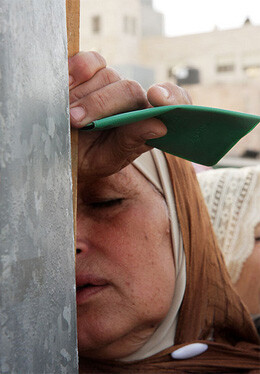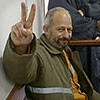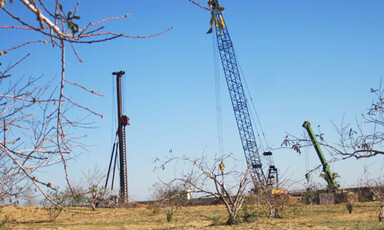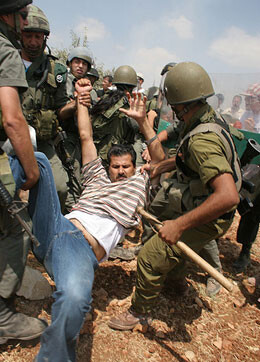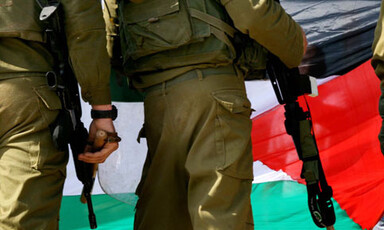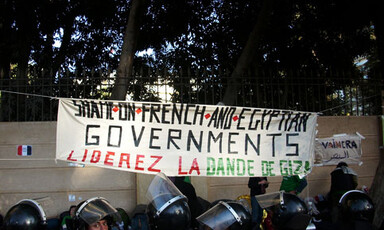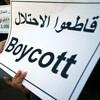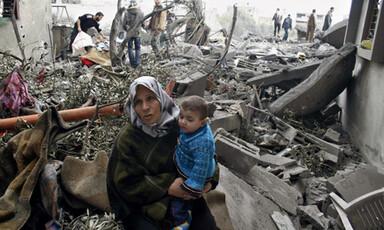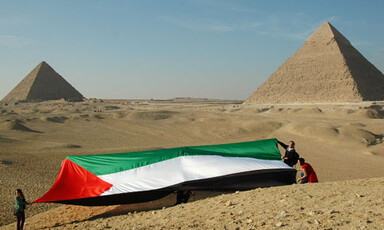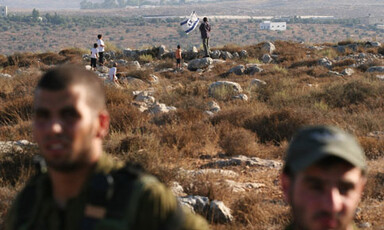
"Redeeming" the land: from kibbutzniks to Hilltop Youth
31 January 2010
After the 1967 war the value of the kibbutz — instrumental in defining territory for the Jewish State of Israel — as a frontline force had become obsolete. The then burgeoning settler movement soon came to replace the kibbutz as a central colonizing body. Occupying Palestinian land and cultivating it to be inhabited by exclusively Jewish communities, the strategies of settlers are not much different than early kibbutzniks. Carmelle Wolfson writes. Read more about "Redeeming" the land: from kibbutzniks to Hilltop Youth













